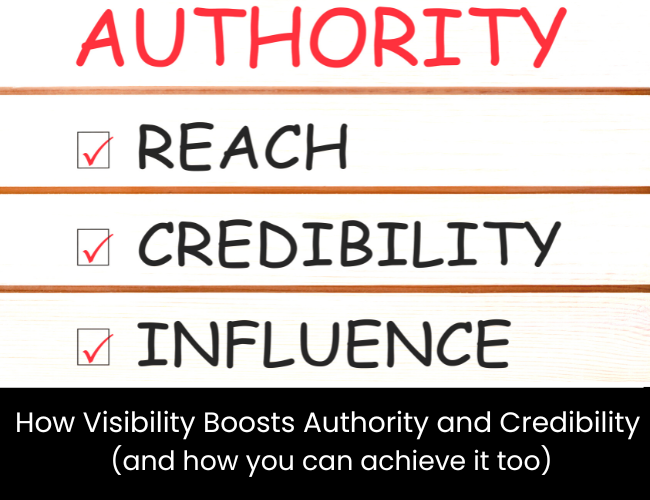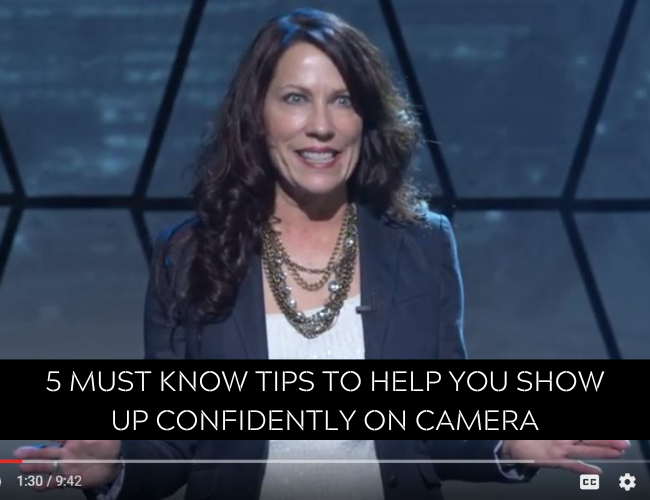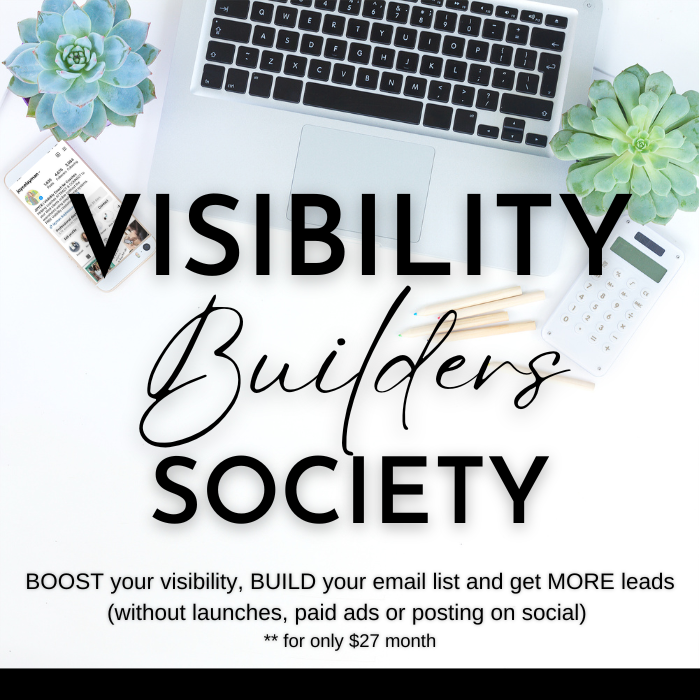Have you ever felt like a fraud? That you’re not qualified to be doing what you’re doing? That one day, everyone is going to realize that you’re a fake? If so, then you’re not alone. Welcome to impostor syndrome. Impostor syndrome is defined as “a psychological pattern in which an individual doubts their accomplishments and has a persistent internalized fear of being exposed as a ‘fraud.’” It’s common among high achievers, and it can be debilitating.
In fact, I’ve struggled with it myself on more than one occasion. If you struggle with confidence, you’re far from alone. In one example, studies suggest 70% of people experience imposter syndrome at some point in their career.
Can imposter syndrome hurt your business? Yes. The good news is that there are things you can do to work through imposter syndrome and come out the other side stronger than ever.
In this video, I’ll share four ways imposter syndrome can hurt your business and tips you can use to help you kick it to the curb.
YOU SPEND TIME BEATING YOURSELF UP FOR FAILURES OR NOT MOVING FAST ENOUGH
How this hurts your business: Whenever you get nervous about failures or think ‘I should be moving faster, it usually results in a flurry of activity. Activity isn’t bad, but if it’s not thought-out or strategic, you’re doing ‘lots of activity’, but not necessarily making decisions that will be better for your business in the long run.
What to do about it: Ask yourself, is there something I need to do more or need to do faster?
Sometimes you may find that you’ve been procrastinating reach-outs or other scary activities. That’s a good time to start a new habit, like reaching out to 5 people in your target audience per day (rather than 27 in one day and then none for the next two months.)
Tips to Squash It
When you feel those pangs of imposter syndrome, squash it…
Name It: Give your inner critic a name, preferably something silly like – Blabber, Doubter, the Nag, Rudolph (makes me think of the cute red-nosed reindeer)…..just do it and see what happens! Brene Brown, PhD, a research professor at the University of Houston Graduate College of Social Work, calls hers “The Gremlin.” Naming your critic something goofy adds a bit of levity and helps to put you back in control of what used to bring you down.
Spin It: Put a new spin on the stories you tell yourself! I use drive time (when I’m alone) to run through my stories. For the biggest impact, talk through your story out loud and in as much detail as possible. The key here is to acknowledge what happened or a belief you’ve become aware of. It’s interesting that the emotional hold it has on you lessens just a bit when you talk it through.
Box It Up: Visualize a teeny tiny box in your mind. The next time those thoughts creep in, put them in the tiny box. It shrinks the problem and gives you more confidence to take it on. Practice visualizing the teeny tiny box in your mind before you go to bed. Describe it in detail. Acknowledge that you’re feeling it. And then remind yourself that everyone experiences these feelings from time to time—even the people who seem to have it all together.
YOU COMPARE YOURSELF TO OTHER’S RESULTS
Knowing that even the most successful people suffer from imposter syndrome was an eye-opening experience for me. I remember hearing Ursula Burns, the former CEO of Xerox, speak at a conference and share that she wondered when she would be found out. To hear the CEO of a billion-dollar company confess she didn’t think she was good enough for her role put perspective on what I was feeling.
Impostor syndrome often rears its ugly head when are building our businesses because we compare ourselves to others. We see someone who’s further along in their journey than we are and think, “Why them and not me?” Or we see someone who seems to have it all together and think, “I could never do that.”
Comparison is the thief of joy, my friend. It will rob you of your confidence and keep you stuck right where you are. So instead of comparing yourself to others, focus on your own journey and what’s possible for YOU. To start, look back at what you’ve already accomplished and how far you’ve come.
- What were the biggest challenges you faced along the way?
- What did you learn from them? How did they help you grow?
Getting perspective is SO important. When you take the time to reflect on your journey, it will be easier to see just how far you’ve come—and how capable you are of achieving even more. Now that you are inspired write down your goals and dreams, then make a plan for how you’re going to achieve them. Then take action—one small step at a time—toward making those goals a reality.
YOU ARE AFRAID TO CHARGE WHAT YOU ARE WORTH
Keeping prices too low or being too quick to offer a discount tie directly to I’m not good enough and doubting your experience and expertise.
How this hurts your business: Duh. Not making the money you want and need is a problem. But it’s more than that. When you claim to be a professional coach, you have standards. You have fees that you set (in a confident, bold moment.) If you’re acting like you’re running a non-profit, you’re not stepping into your business as a professional.
What to do about it:
1) Spend time creating an offer stack. Break down each of your offers into segments to see where you are giving your time (worth money) as well as resources (also worth money). Consider the bonuses you include because they all add up.
2) Don’t discount during a sales conversation, “in the moment” ever. If you have discounts built in as part of a sales strategy, that’s different and can be effective, but then stick to what you’ve determined is the ‘fast-action discount.’
When you’re beginning, set an ‘initial price’ for your offering, and then commit to raising your prices with every client you book and new launch.
IMPOSTER SYNDROME MEANS YOU DON’T FULLY COMMIT
You don’t make bold moves because you aren’t sure you can succeed.
How this hurts your business:
If you’re unsure about whether a path is the right one, you usually walk down it more slowly. You don’t go ‘all in’ because a part of you feels it’s safer to hold back. This means that usually, you won’t invest in the help you need, the infrastructure you need to create, and the person you need to become.
What to do about it:
- Work with a business coach who will supportively push you to make the strategic moves you need to make.
- Choose your inner circle carefully. Become part of a community that will support you in your commitments.
The people we surround ourselves with greatly impact our lives—including how we feel about ourselves. That’s why it’s so important to choose your inner circle carefully. Surround yourself with people who believe in you, see your potential, and will encourage and support you—no matter what. These people will help keep imposter syndrome at bay and help you stay focused on your goals.
To be clear, your inner circle is also there to help hold you accountable, so they’ll let you know if you’re not moving forward. But their intention is always to help you grow and achieve your dreams.
Jim Rohn said you are the average of the five people you spend the most time with. Look at the people you spend the most time with. If you need additional support, look for a mentor who can help. To do this, look for someone who is doing what you want to do or something similar and is further along. They can help provide guidance and support as you work toward your goals.
You can also join an online or in-person group or community of like-minded individuals. These groups provide a great way to connect with others who understand what you’re going through and can offer encouragement and support.
And whatever you do, don’t do it alone. Building a professional coaching business is not a DIY activity.
If you’re struggling with imposter syndrome, know that you’re not alone —even the most successful people experience it from time to time. But also know that there are things you can do to work through it—including squashing it, getting some perspective, and choosing your inner circle carefully. By implementing these tips, you’ll be well on your way to kicking imposter syndrome to the curb!
If you saw yourself in ANY of these, it’s time to do something different.
Schedule a strategy call to see how to turn YOUR Imposter’s Syndrome around.








